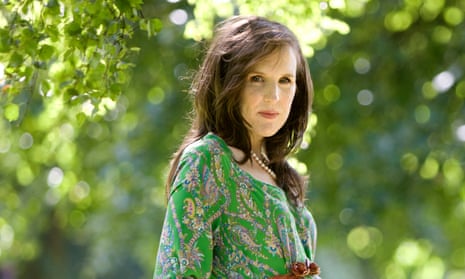
The best fiction of 2023
Soldier Sailor by Claire Kilroy review – immersive dive into the baby years
The chaos and horrors of early motherhood are vividly, remorselessly evoked in a woman’s monologue to her son
Sarah Crown
Wednesday 17 May 2023
C
The novel is brief but utterly remorseless – it comes at you full-throttle, as if delivered on a single breath. The internal monologue of a mother (the Soldier of the title) addressed to her son (Sailor), it exists, almost, outside of time. No context is provided, and only Soldier’s perspective is given; this is her description, unqualified and unquestioned, of “all I had lost and all I had gained”. That she’s an unreliable narrator – manifestly, almost luxuriously so – is neither here nor there. The point is that, in a world that has diminished her, reduced her to the near-voiceless role of “mother”, this is her experience. It’s her account of the feeling of finding herself torn out of what she had believed was her real life and deposited in a sleep-deprived, incoherent parallel universe where achieving anything is momentous but anything that is achieved is both negligible and banal. “I produced a shoe only to find you’d pulled off your sock,” she says of the teeth-grinding process of trying to leave the house. “I put the sock back on while you pulled off the other one. I put that one back on while you pulled off the first. Oh, it was all so stupid. People think that looking after an infant is basic. I know this because I once thought so myself.”
It’s her experience, but every woman (and as Soldier points out bitterly and bemusedly, it’s almost always a woman) who’s been in sole charge of a small child has lived through this. From the specific visceral sensations of motherhood to the battle to administer Calpol, the “domino effect” of lifting your child out of the buggy and watching it “tip over backwards weighted down by the nappy bag”, the struggle of trying to buckle a writhing toddler into a car seat – it’s all there. And then there are parenthood’s ur-scenarios: the heart-stopping near-misses between heads and swings in playgrounds, the trips to Ikea when you lose your child. (This one actually happened to me. We ran around yelling for five minutes before a kindly older man whispered: “I think he’s hiding in that wardrobe.”) These vignettes are so profoundly recognisable that questions of trustworthiness are shunted sideways. Soldier may not be a reliable narrator – she’s too tired for that and, in fact, as the book progresses she draws attention to the wrinkles and holes in her monologue – but she is a truthful one. We know she’s telling the truth because we’ve been there ourselves.
The person who absolutely isn’t there, according to Soldier, is her husband. The father of her child, who appears on the edges of the action complaining that he has an early start at the office and texting “‘What does he eat?’ the one time he was left in charge”, is almost cartoonishly awful: a repository for all the fury and grief and baffled resentment that formerly equal women feel when they’re left holding the baby. He resents spending his “days off” shopping for nursery furniture. He forgets his son’s antibiotics. He doesn’t know what to put in the nappy bag and watches football while his wife packs it instead. There are moments when his frightfulness feels preposterous – but again, this is Soldier’s experience. She’s describing, it seemed to me, not so much a person as the feeling of having had a partner and having lost that partnership; the shock of discovering her relationship is not what she thought it was. “All along I had believed I was equal, when all along I was not,” she says. “All along I had been treading towards this great crevasse called motherhood, and now that I was at the bottom of it looking up … I could see that to have presumed Empire and patriarchy were dead was naive at best. Not only were they alive and well: they had won.”
If Kilroy’s novel ended here, it would have done more than enough to locate her among the ranks of motherhood’s laureates alongside the likes of Helen Simpson, Rachel Cusk and Sarah Moss. But it doesn’t. The final section expands – abruptly, beautifully, agonisingly – to grapple with the true existential crisis at the heart of motherhood: the understanding, born with the baby, that we’re all time’s prisoners and “it will do us in in the end”. We crawl out, ultimately, from the chaos of early motherhood, but the love continues to obliterate us. “I wasn’t scared of dying until you were born,” Soldier says towards the novel’s close. Forget the sleepless nights; that’s the real horror, right there.


No comments:
Post a Comment